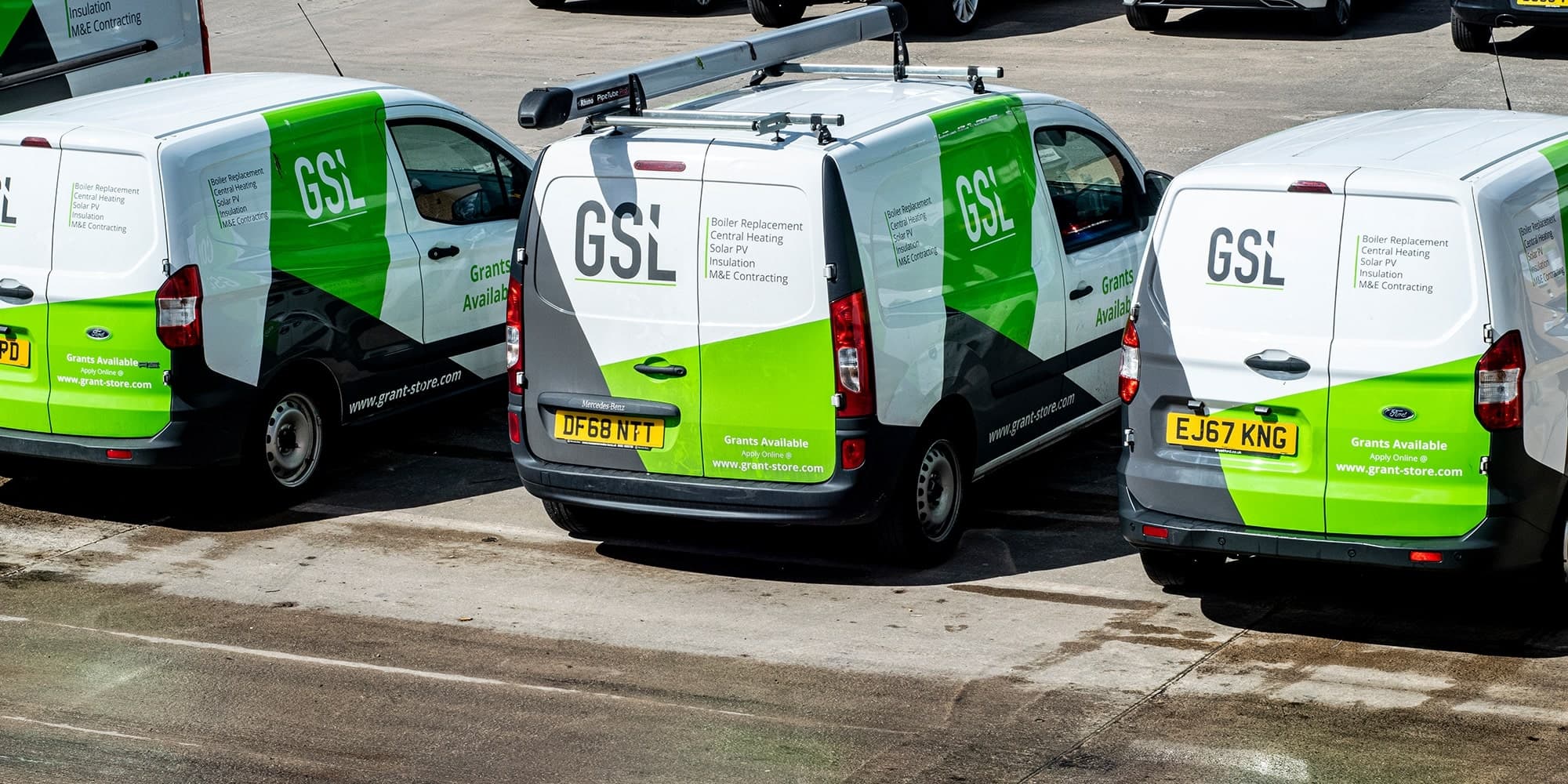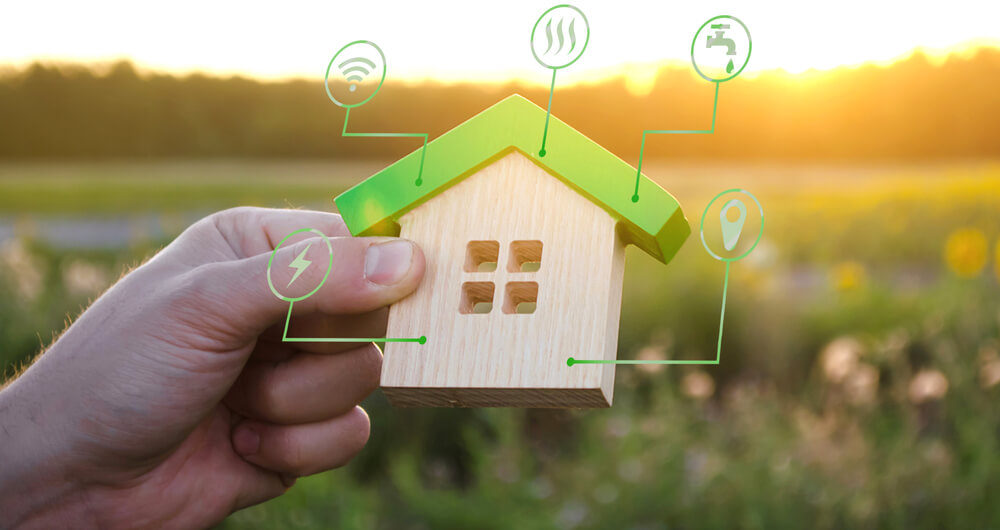August 6th, 2025
How 900m2 of solar panels are helping this NHS hospital go carbon neutral
Written by: Puneet Verma
News
The ongoing conversation around climate change and sustainability is becoming more and more important as time goes on. And with the UK government’s ambitious targets for energy efficiency, it raises the question, “Are UK homes actually getting any greener?”
In this blog, we’ll take a look at the current state of UK homes and the steps being taken to create a more sustainable future. Let’s get into it.
Key Takeaways
The journey to greener homes in the UK is ongoing, but progress has been slow.
According to Rightmove’s 2023 Greener Homes Report, many homes still have low Energy Performance Certificate (EPC) ratings. In 2023, 60% of homes for sale and 50% of rental properties were rated D or below.
While there have been some improvements, if we continue at the current pace, it would take decades to bring all homes up to an A-C rating.
Retrofitting existing homes can be difficult, in part because homeowners lack knowledge about the best energy-saving measures. But, perhaps the biggest roadblock is the initial cost.
For many, insulation, double glazing, and renewable energy systems like solar panel installations and heat pumps can be incredibly expensive.
However, making these upgrades is essential if we are to meet the government’s targets, as 80% of the buildings that will be in use in 2050 already exist today.
The UK government has backed several schemes that promote energy efficiency and support homeowners with the costs of making green improvements.
Two of the main initiatives are ECO4 and GBIS.
The Energy Company Obligation (ECO4) is a government-backed scheme that funds energy-efficient home improvements to reduce carbon emissions and tackle fuel poverty.
Under the ECO4 scheme, energy companies are obligated to help households install measures such as insulation, heating upgrades, and renewable energy systems. This scheme is mainly for low-income households, helping vulnerable families reduce their energy bills and improve living conditions.
Similarly to ECO4, the Great British Insulation Scheme (GBIS) aims to improve the energy efficiency of UK homes by offering insulation grants to homeowners.
Operated by Ofgem, this initiative provides homeowners and landlords with the resources and financial support needed to insulate their properties effectively.
Covering a wide range of insulation types, from cavity walls to loft insulation, the scheme targets both new builds and existing homes.
The Future Homes Standard will obligate new homes from 2025 to have high-efficiency standards and be Net Zero ready. This means they must produce as much energy as they use with the help of:
New builds have the advantage of being designed with energy efficiency in mind from the start.
Proper insulation, passive solar design, and renewable energy systems can be seamlessly integrated, reducing the need for expensive retrofits down the line. These measures will not only reduce the carbon footprint of new homes but also lower energy costs for homeowners across the country.
While government initiatives and new building standards are important, the role of individual homeowners and landlords can’t be overlooked.
Many homeowners are motivated to make green improvements to save on energy bills. Simple upgrades like installing energy-efficient lighting and appliances are common, but larger changes, such as adding solar panels or heat pumps, need a bigger upfront investment.
Landlords also face challenges in making their properties greener; the Rightmove report found that many landlords prefer to sell poorly rated properties rather than invest in upgrades. However, there is a growing trend of prioritising energy efficiency, with 61% of landlords now avoiding properties with an EPC rating below C.
UK homes are gradually becoming greener, but the journey is far from over. Government schemes like ECO4 and GBIS provide much-needed support, and the upcoming Future Homes Standard will set a strong foundation for new builds.
However, retrofitting existing homes and encouraging the wider use of energy-efficient measures still face some big hurdles. Whether you’re a homeowner or a landlord, making your property more energy efficient could be easier than you think.
Our team of experts at Grant Store can help you find which funding you’re eligible for, support you through the application and carry out the installation for you. From updating an inefficient gas boiler to kitting out your home with solid wall insulation, clean energy and cheaper bills could be just one call away.
August 6th, 2025
How 900m2 of solar panels are helping this NHS hospital go carbon neutral
Written by: Puneet Verma
News
August 6th, 2025
What is a solar panel inverter?
Written by: Puneet Verma
News
June 9th, 2025
Solar water heating vs solar PV: What’s right for you?
Written by: Gareth Whitehill
News
May 9th, 2025
Solar panel installation: Step-by-step guide for UK homes & businesses
Written by: Gareth Whitehill
News
April 9th, 2025
Are solar batteries worth it in the UK?
Written by: Gareth Whitehill
News
April 9th, 2025
What size solar battery do I need?
Written by: Gareth Whitehill
News
January 20th, 2025
Heat pumps vs. traditional heating: Which is right for your home?
Written by: Gareth Whitehill
Heat Pumps
January 13th, 2025
Do heat pumps work well in older homes?
Written by: Gareth Whitehill
Heat Pumps
January 6th, 2025
How do air source heat pumps work?
Written by: Gareth Whitehill
Heat Pumps
December 30th, 2024
Are air source heat pumps worth it in the UK climate?
Written by: Gareth Whitehill
News
December 23rd, 2024
Why are heat pumps taking over UK homes?
Written by: Gareth Whitehill
Heat Pumps
December 16th, 2024
Are heat pumps suitable for smaller homes?
Written by: Gareth Whitehill
Heat Pumps
September 25th, 2024
Grant Store are official sponsors of Chorley FC!
Written by: Gareth Whitehill
News
August 30th, 2024
Grant Store is an official Octopus Trusted Partner!
Written by: Gareth Whitehill
News
August 1st, 2024
How green is solar energy?
Written by: Gareth Whitehill
Solar
July 30th, 2024
How to insulate an old house
Written by: Gareth Whitehill
News
July 29th, 2024
What’s Involved in an Air Source Heat Pump Installation?
Written by: Gareth Whitehill
Heat Pumps
July 28th, 2024
A complete guide to heating water with solar power
Written by: Gareth Whitehill
Solar
July 25th, 2024
How To Make the Most Out of ECO4 Funding
Written by: Gareth Whitehill
News
July 23rd, 2024
Are UK homes getting any greener?
Written by: Gareth Whitehill
News
June 27th, 2024
Why should you choose an MCS installer for your heat pump project?
Written by: Gareth Whitehill
Heat Pumps
June 27th, 2024
When does ECO4 end, and what happens next?
Written by: Gareth Whitehill
News
June 11th, 2024
Exploring Energy Grants for Pensioners: A Guide to Lowering Your Energy Costs
Written by: Gareth Whitehill
News
June 11th, 2024
Do air source heat pumps work well with solar panels?
Written by: Gareth Whitehill
Heat Pumps
June 11th, 2024
Your Guide to Understanding Energy Performance Certificates (EPCs)
Written by: Gareth Whitehill
News
June 11th, 2024
What energy grants can I get on Universal Credit?
Written by: Gareth Whitehill
News
June 1st, 2024
Who qualifies for a boiler grant in the UK?
Written by: Gareth Whitehill
News
May 22nd, 2024
Is the UK Government Planning to Ban Gas Energy?
Written by: Gareth Whitehill
News
April 25th, 2024
Your Complete Guide To Off-Gas Property Grants in the UK
Written by: Gareth Whitehill
News
April 24th, 2024
What are electric storage heaters?
Written by: Gareth Whitehill
News
April 23rd, 2024
How To Improve Your Home’s EPC Rating: A Guide to Boosting Efficiency and Reducing Costs
Written by: Gareth Whitehill
News
April 23rd, 2024
What is the ECO Scheme, and how can it help me?
Written by: Gareth Whitehill
News
April 23rd, 2024
How to apply for the ECO4 Grant: Everything you need to know
Written by: Gareth Whitehill
News
April 18th, 2024
The Complete Guide to Heat Pumps: Benefits, Costs, Savings, and Efficiency
Written by: Gareth Whitehill
Heat Pumps
March 13th, 2024
What size solar PV system do I need?
Written by: Gareth Whitehill
Solar
February 27th, 2024
What grants are available for energy-saving?
Written by: Gareth Whitehill
News
November 24th, 2023
How Many Solar Panels Do I Need?
Written by: Gareth Whitehill
Solar
November 23rd, 2023
How Much Money Do Solar Panels Save?
Written by: Gareth Whitehill
Solar
November 22nd, 2023
How Are Solar Panels Made?
Written by: Gareth Whitehill
News
November 22nd, 2023
Do you need planning permission for solar panels?
Written by: Gareth Whitehill
News
November 22nd, 2023
How Much Do Solar Panels Cost?
Written by: Gareth Whitehill
News
November 22nd, 2023
How Do Solar Panels Work?
Written by: Gareth Whitehill
News
November 20th, 2023
Smart Export Guarantee Rates 2024
Written by: Gareth Whitehill
News
November 20th, 2023
Can I Add a Battery to my Solar System?
Written by: Gareth Whitehill
News
November 20th, 2023
How Do You Store Solar Energy?
Written by: Gareth Whitehill
News
October 3rd, 2023
Solar panels: are they worth the cost?
Written by: Gareth Whitehill
News
September 19th, 2023
How efficient are solar panels?
Written by: Gareth Whitehill
News
September 19th, 2023
Do solar panels boost home value?
Written by: Gareth Whitehill
News
September 19th, 2023
What are the pros and cons of solar panels?
Written by: Gareth Whitehill
News
Not sure which energy-saving solution is right for your home? Or do you have questions about grant eligibility? Our team has the answers. Give us a call and we'll help you figure everything out.
Call us now on:
01942 918 844
"*" indicates required fields
